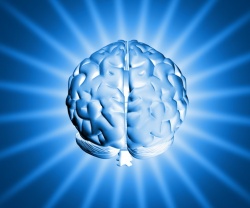Difference between revisions of "Five delusive inclinations"
Jump to navigation
Jump to search
| Line 1: | Line 1: | ||
[[File:2709589.jpg|thumb|250px|]] | [[File:2709589.jpg|thumb|250px|]] | ||
| − | + | [[five delusive inclinations]] | |
([[五鈍使]]) (Jpn [[go-donshi]] ) | ([[五鈍使]]) (Jpn [[go-donshi]] ) | ||
| − | [[Greed]], [[anger]], [[foolishness]], [[arrogance]], and [[doubt]]. According to The [[Dharma]] Analysis Treasury, the [[five delusive inclinations]] constitute the most fundamental of [[illusions]] or [[earthly desires]]. [[Dharmapala]] (530-561), an [[Indian]] [[scholar]] of the [[Consciousness-Only]] [[doctrine]], defined the [[five delusive inclinations]] and the five false [[views]] together as the ten fundamental [[earthly desires]], and [[T'ient'ai]] (538-597) included them among the [[illusions]] of [[thought]] and [[desire]], which constitute the first of the three categories of [[illusion]]. | + | [[Greed]], [[anger]], [[foolishness]], [[arrogance]], and [[doubt]]. According to The [[Dharma]] [[Analysis]] Treasury, the [[five delusive inclinations]] constitute the most fundamental of [[illusions]] or [[earthly desires]]. [[Dharmapala]] (530-561), an [[Indian]] [[scholar]] of the [[Consciousness-Only]] [[doctrine]], defined the [[five delusive inclinations]] and the five false [[views]] together as the ten fundamental [[earthly desires]], and [[T'ient'ai]] (538-597) included them among the [[illusions]] of [[thought]] and [[desire]], which constitute the first of the three categories of [[illusion]]. |
See also [[earthly desires]]. | See also [[earthly desires]]. | ||
Revision as of 01:47, 18 September 2013
Greed, anger, foolishness, arrogance, and doubt. According to The Dharma Analysis Treasury, the five delusive inclinations constitute the most fundamental of illusions or earthly desires. Dharmapala (530-561), an Indian scholar of the Consciousness-Only doctrine, defined the five delusive inclinations and the five false views together as the ten fundamental earthly desires, and T'ient'ai (538-597) included them among the illusions of thought and desire, which constitute the first of the three categories of illusion.
See also earthly desires.
